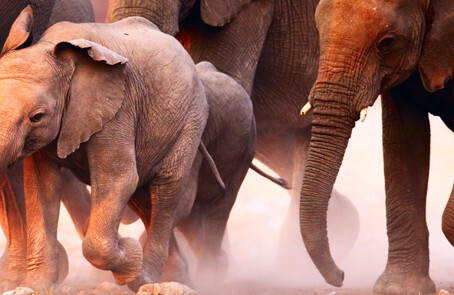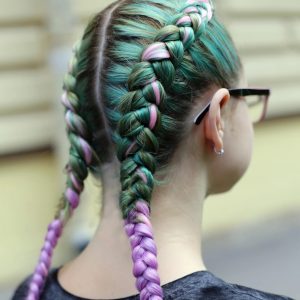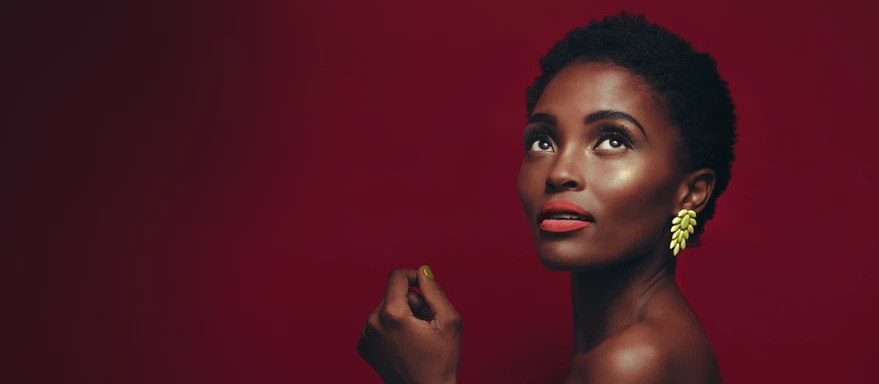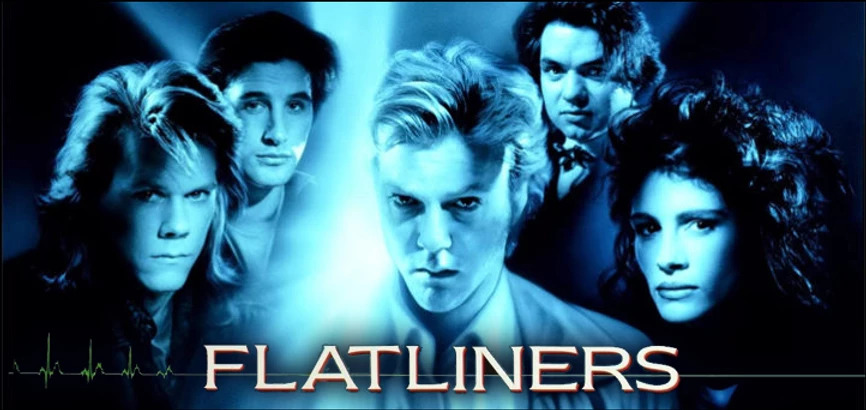
Chief Healing Officer at Radiant Health Strategies

There is a question that I have been asked a lot lately: As a Black woman, what would you like for your community to do to better support minority folks in today’s society? The question gives me pause because 1) I will not refer to anyone as a “minority” because it’s inaccurate and perpetuates harmful ideas about racial hierarchy and 2) I realize that the people who ask me the question don’t actually want to hear an honest answer. I generally get asked this question once, and when I share my truth, I am not asked again. The recently publicized racist attacks in the news caused me to be interviewed for white publications, but once I spoke my truth, the articles were killed.
It would be a grave understatement to say that racial dynamics are multilayered with many shades of gray requiring thoughtful analysis from an array of vantage points. I humbly invite you to refrain from skimming or reading ahead and encourage you to read through the discomfort of this truth and reconciliation experience from beginning to end in order to receive a complete understanding of this post as well as its healing strategies. I also invite you to click on the hyperlinks to gain additional knowledge and practice an array of healing strategies as you read.
Because many people seem to be too afraid (White people) or too frustrated/emotionally triggered/exhausted/shut down (Black, Brown, indigenous, and immigrant people) to talk honestly and at least somewhat objectively about race, I use true personal stories, compassion and love to assist us in reaching a higher level of understanding.
A Troubling Glimpse of My K-12 Years
Elementary School

For reasons that require a separate blog (or book) to unpack, I truly believed that I was an ugly little Black girl. This feeling was reinforced continually throughout elementary school, but during the annual Christmas play, I finally had the chance to be seen as pretty. Our teachers were to put makeup on us and we would dance around a Christmas tree. For weeks, I practiced being a pretty doll with the rest of the girls in my class. I even practiced the dance at home; I was excited and ready. Or so I thought.
On the night of the show, while we were getting dressed, one of my white teachers walked over to me and said, “Phyllis, we were thinking that since you are so tall, we would like for you to be the Christmas tree in the play.” The teacher didn’t sit in a chair or squat down to meet me at eye level and provided no explanation for the abrupt change. She looked down at me, asserting her authority in a friendly yet condescending way. I cried and asserted that I didn’t want to be a tree, I wanted to be a pretty doll just like everyone else (and like I had been practicing for weeks). Shocked by my reaction, the teachers went to get my mother. I’m not sure what they said to her and I can’t remember what she said to me. I do remember letting myself go numb, however, becoming the Christmas tree, and making myself put on a happy face so that the White people could have their show, all the while feeling like something inside of me had just died.
Less than 3% of my elementary school peers were Black students. There were no Black teachers, custodians or any other personnel of color, so the White kids thoroughly enjoyed taunting, teasing, and even hunting us with no repercussions.
The one time that I went to school with braids in my hair, I was bullied to the point that I begged my mother to let me “perm” my hair to make me look less “Black” (a decision that I deeply regretted later). It took many years of experimentation to figure out how to reduce the burning sensations and prevent the scabs caused by the chemical burns when I permed my hair (which happened every six weeks). It was decades later, when I became Doctor of Natural Medicine, that I was able to acknowledge the damage to my hair and scalp and cultivate the courage to reverse that decision.

To this day, beautiful Black women continually approach me in private and tell me that they want so badly to stop putting chemicals in their hair, but they are afraid of how they will be treated by White people and fear that their husbands/Black men will no longer find them attractive. As a healer, I have consistently encouraged Black men, who prefer straight hair, to consider how conventional standards of beauty have influenced/brainwashed them, and to lovingly support their woman’s desire/need to fall in love with their natural hair.
Middle School
Middle school was better because the TV mini-series “Roots” made White people uncomfortable, and I started to grow even taller which inoculated me from being an easy target. Through the craziness, I consistently found silver linings and managed to connect with every ethnicity, including many white students. My music teacher, who was white, noticed this special ability of mine and called on me to settle a dispute between the Black students (who wanted to sing It’s My Turn) and the White students (who wanted to sing Dream On) for our eighth-grade graduation ceremony. Although I resented my teacher for putting me on the spot to take on the responsibility of an adult teacher without warning or preparation, the experience taught me a great deal about the art of racial mediation and negotiation.
High School

High School was a different animal and will take a considerable amount of time for me to unpack. Although I have a lot of great memories from high school and befriended many wonderful people, the racial dynamics were sort of like a cross between “Roots,” (but would be more accurately titled “Roots: The Post Jim Crow Years”), “I Know What You Did Last Summer” (without the murder) and “Flatliners” (without the apologies). Our family moved to a more rural area, meaning that I would have to start over making friends at a high school much further away. I ended up at a high school with a Black superintendent, a few Black teachers, custodians/other staff, and about 25-30% of the students were Black. What a reprieve from my K- 8 experiences.
Though I refused to become a member of the social cliques at school, I was warmly welcomed and quickly made a ton of friends in every grade level and of every ethnicity. I took my first psychology course in ninth grade and it totally rocked my world. It was the first time that I considered that the world may not be the way I perceive it. My psychology studies inspired me to continually run an array of experiments to test my perceptions and create my own diagnoses for patterns that I noticed. Almost immediately, I experienced what I coined “Slave Master Syndrome.” Slave Master Syndrome describes a white personal subconscious desire to assert a sense of racial, social, and/or physical power over Black people and women.
Throughout the Euro-American slave trade, White slave owners would marry White women and parade their whiteness and privilege in public and in the relative privacy of their plantations, they would sneak down to the slave shacks to rape Black women. Those assaults were committed to further assert the brutal power slave owners held over enslaved Africans. (Though not often discussed, Black men were raped as well by White men and women.) The sanctity of marriage, between Whites or Blacks, did not seem to matter. In fact, marriage among the enslaved was often weaponized to further control Black men and women on plantations. Their children and relatives would be sold for profit or kept as house slaves—which introduced troubling power dynamics between the slave master, his illegitimate children, and his wife.
What I called “Slave Master Syndrome” afflicted some of the more popular White boys in school— often those who generally or even avidly pretended they were attracted to Black girls.
In high school, I noticed that if I were hidden from public view, in between school buses or alone in the hallway, for example, some White boy would be there attempting to touch, kiss, grab or otherwise behave as if he had carte blanche with my body. If only I knew the language of consent and how to enforce it. The only way I could get rid of them would be to say “if you want to kiss me, then kiss me over there where everyone can see us.” This would make them disappear. Of course, there were a few select White playboys who would flirt with me (and every other girl) in public. If a gnat and an octopus could have a child, it would be those White playboys.
What I found to be most repulsive about the slave master White boys in high school was how they devalued and dehumanized Black girls. They didn’t want to legitimately date me, they just wanted me to be available for them in case they wanted to sneak around; They didn’t want to jeopardize their public image as bona fide members of the elite, jock, Risky Business White boy’s club. I’m not sure why any of them thought that I would consider their actions to be acceptable, let alone attractive. I did my best to avoid making eye contact with them. It is very important for me to be respected, and I was not going to be some White boy’s secret breadcrumb snatcher on the sly.
The Black students knew what was going on, but we didn’t talk about it. We didn’t want to put the Black boys in conflict with the White boys, because there was not enough protection for the Black male students. If a fight broke out, only the Black students ended up in Juvenile Detention Centers. Just like on the slave plantation, we surreptitiously and collectively carried our burdens and did what we could to protect each other. During this time, crack cocaine was intentionally dropped into Black urban neighbors across the US which decimated Black families and fueled the prison industrial complex. Even though we didn’t really understand what was going on in urban America, there was no way that we would dare do anything to increase the targeting of Black boys.
I occasionally catch myself walking through the airport or stores avoiding eye contact with White males (an unhealthy avoidance tactic/self-protection habit I developed in high school) which lets me know that there is still more healing for me to do.
The University Years
The College Boy
When I was in college, I remember being the only Black person in my screenwriting class. For one particular activity, we submitted a short scene which our professor, who was white, read aloud without revealing who wrote the story. When my story (which was about a wealthy woman living in a Victorian style home) was read, the class went wild and kept trying to figure out who wrote it, but not one person in the class looked at me. It was as if I were invisible. There was a moment when my professor silently caught my eyes and shamefully shook her head. I found it interesting that, while I did not specifically identify the race of the woman in my story, the students assumed that she was a White woman.
At one point, I noticed that my professor seemed to be stalling. She kept shifting in her seat and shuffling papers as if attempting to avoid reading one of the stories. She then took a breath and, reluctantly, read another story that was about a Black female slave. When I heard the story, I could understand why my professor did not want to read it. The character was so flat and the story was so ridiculously inaccurate (and thoroughly insulting), I could barely believe my ears. When she finished reading the story, the room went dead silent, and I soon realized that the students thought I had written it! Suddenly, a White male student proudly broke the uncomfortable silence and the rule of not revealing himself.
Perhaps I was too unaware to have made the connection in my youth, but at this moment I realized how little White people knew about Black people, but how much I knew about white culture. The college boy’s story revealed a lack of cultural competence and an abundance of willful ignorance that was astounding to me. I waited until everyone left before approaching my extremely embarrassed professor, and before I could say anything, she lifted one hand in the air to pause me and said “sometimes, I’m so ashamed of my people.” We both laughed out loud in disbelief and were able to have the kind of healthy discussion about race that seeks understanding over shaming.
The Fired Professor
In another one of my college courses, half of the White students dropped our literature class because the professor, who was white, insisted on including one Black author in our list of books to read about the Reconstruction era. Because the Reconstruction era (1865-1877) was the period following the Civil War, I’m not sure how a Reconstruction era course could omit Black authors and be accurately taught. The White students who chose to stay in the course were absolutely moved by the book (“Incidents in the Life of a Slave Girl” by Harriet Jacobs) and were surprised/amazed that they could relate to it. I read books whether or not I thought that I could relate to them. I remember sitting in class bitterly thinking that I can’t “relate” to being a White man with a peg leg or sleeping with a religious minister but I read “Moby Dick” and “The Scarlet Letter” without protest.
One White woman in the class said she was so absorbed into the story that she forgot she was reading a Black story and just saw it as a human story. In that moment I realized that, either consciously or unconsciously, White people still did not recognize Black people as humans.
Unfortunately, the White students who dropped the class complained so much that the professor (who was truly an outstanding educator) was fired after that semester. I was appalled by the power of these students to rid themselves of one of the best literature teachers that I had at that university. I’m not sure why, but up until this moment, I hadn’t considered that an American person could be in their early twenties and had never read one book by a Black person (or any other ethnicity).
We still haven’t healed from the legacy of slavery because we refuse to look at these elephants in our rooms.
Elephant #1: Will we become humbly honest with ourselves, recognize, take responsibility for and seek to overcome our own levels of deep ignorance? I invite you to meditate on this question and think about ways you can actualize your awakening before the next chapter in the journey. Continue Reading>



